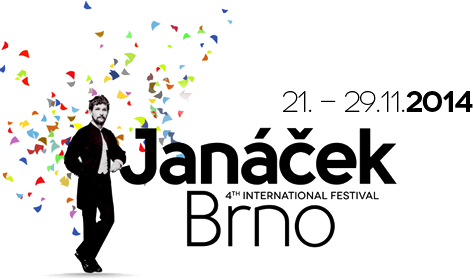Gala festival opening
premiere
Conductor: Marko Ivanović
Stage director: David Radok
Set Design: Zuzana Ježková, Ondřej Nekvasil
Costume Design: Zuzana Ježková
Lighting Design: Petr Kozumplík
Choirmaster: Pavel Koňárek
Dramaturgist: Pavel Petráněk
Assistant Conductor: Robert Kružík
Assistant Stage Director: Otakar Blaha, Barbora Hamalová
CAST:
Emilia Marty: Gitta-Maria Sjöberg
Albert Gregor: Aleš Briscein
Vítek, Kolenatý’s clerk: Petr Levíček
Kristina: Eva Štěrbová
Jaroslav Prus: Svatopluk Sem
Janek: Peter Račko
Dr Kolenatý, a lawyer: František Ďuriač
A Stage Technician: Jiří Klecker
A Cleaning Woman: Jitka Zerhauová
Hauk-Shendorf: Josef Škrobánek
A Maid: Jana Wallingerová
Janáček Opera Ensemble and Orchestra of the National Theatre Brno
Brno National Theatre
Co-production between The National Theatre Brno and Opera Gothenburg.
Janáček completed his seventh opera, The Makropulos Affair, in 1925, when he was 71. But why did he choose Čapek’s play, which at first sight appears so thematically different from all of Janáček’s other operas? It seems to have been from a need to reflect on a life nearing its end and the meaning of life and death. This can already be seen in The Cunning Little Vixen, where death goes hand in hand with birth. Janáček’s pantheistic outlook is obvious here: nature has its own order and, though it may appear cruel, it is the only conceivable and logical one. The Makropulos Affair examines what would happen if this order were artificially tampered with. For someone who has lived to be 300 years old, life becomes unbearable. Faith and the meaning of existence are lost. To outward appearances, such a person becomes a faultless personality, but inwardly they are transformed into a kind of monster. It would appear that the premiere of Čapek’s play arrived at precisely the right time and coincided with the composer’s own thoughts. The premiere of the opera took place at the Brno National Theatre in the City Theatre building (today’s Mahen Theatre) on December 26 1929 and met with great success. This was partly due to the excellent staging by the conductor František Neumann, the director Ota Zítek and Alexandra Čvanová in the lead role (who, incidentally, took on this role at only 29 years of age). What is it that continues to fascinate us about this opera today? No doubt there is its modernity and exclusive setting, where people use cars and telephones, but it also has the mystery and tension of a well-constructed detective story. However, its success is mainly due to the brilliance of Janáček’s music and his ability as a composer to perfectly combine words and music into one unique operatic whole.








